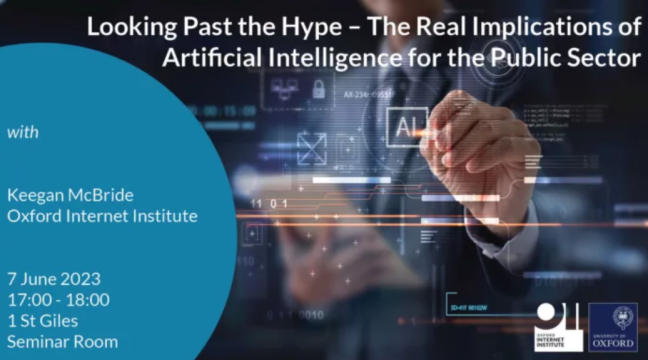
On 7 June, our Legal Interoperability Team attended the Looking Past the Hype – The Real Implications of Artificial Intelligence for the Public Sector 2023 event. In this talk, Dr Keegan McBride focused on discussing whether Artificial Intelligence (AI) will transform the public sector and, if so, in what ways. This short post presents the main takeaways from the event:
-
Contrary to the prevailing public discourse suggesting that AI will bring an end to bureaucracy, this technology is far more likely to reinforce it.
a. Throughout history, governments have always been interested in collecting and strategically applying information. AI provides new, more sophisticated tools for them to do so.
b. Public authorities are therefore expected to prioritise the integration of AI into existing or new business processes in order to capitalise on the benefits offered by this technology.
-
Understanding what increased use of AI in and by governments would imply in practice is critical:
a. The public discourse highlights the potential of AI in external-facing applications, leveraging technologies such as chatbots, natural language processing, and automated decision-making.
b. However, despite considerable government interest in citizen-facing AI applications, the greatest benefit for the public sector will likely be realised through internally focused implementations which will increase the effectiveness and efficiency of governmental agencies.
c. Such endeavours will require investments in building new capabilities and processes, and will most probably rely on strong public-private partnerships.
i. Private sector companies are expected to play a crucial role in the procurement, development, and training of AI systems for governments.
ii. Access to government-held data sources will be required for the effective use of AI. As a result, the public sector will need to improve its data collection and management capabilities.
iii. However, no amount of technology will fix a broken system! As such, in some situations, the development of new governmental processes and organisational structures will be key.
We want your feedback
Do you find such knowledge sharing useful?
Would you like to see the BLSI community invest more time in such activities?

